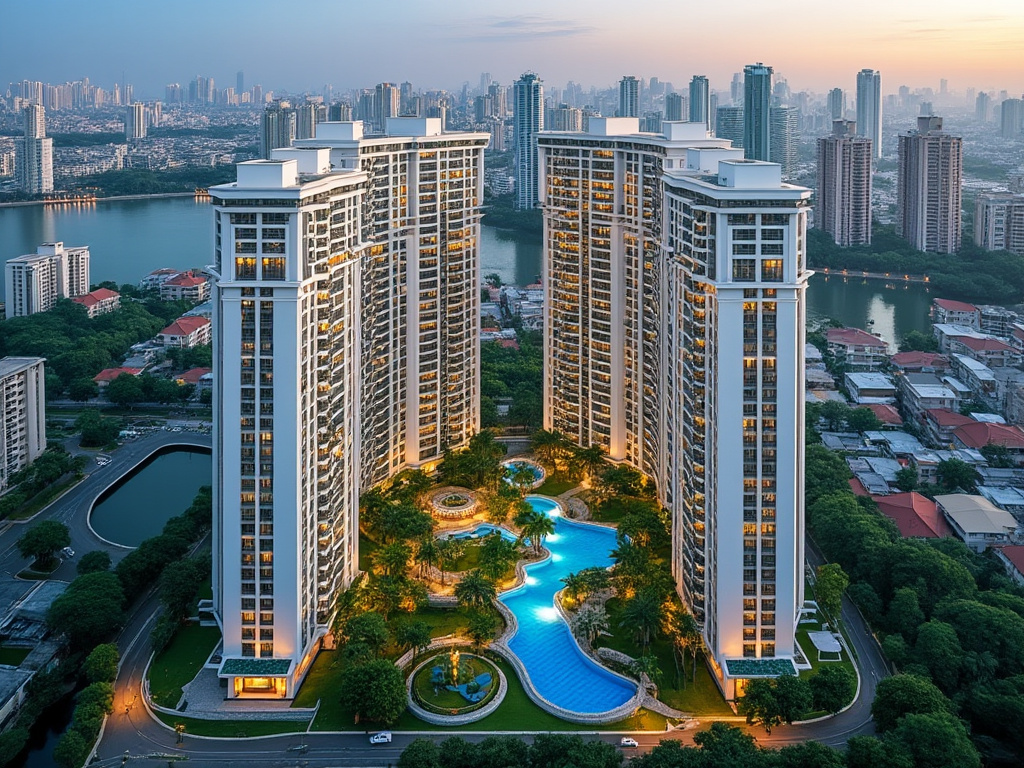The Thai real estate market in 2024 is witnessing dynamic shifts, influenced by economic policies, international interest, changing domestic demands, and anticipated trends for 2025. Here’s an in-depth look at what’s happening in this vibrant market:

Government Intervention and Market Stimulation
Recent developments include significant government intervention aimed at revitalizing the property sector. Posts on X (formerly Twitter) indicate that Thailand has greenlit soft loans amounting to US$1.58 billion, a strategic move to inject liquidity into the real estate market:
-
Soft Loans: Designed to make property buying more accessible, potentially lowering the entry barriers for middle-class families and investors.
-
Impact: Expected to increase property transactions, encourage new developments, and stabilize prices.
Luxury Property Surge
Despite global economic fluctuations, the luxury segment continues to thrive:
-
High-end Condominiums: Bangkok and Phuket remain hotspots with foreign interest.
-
Villas and Estates: Demand for private villas with premium amenities is notable in Koh Samui and Phuket.
Shift Towards Sustainable Development
Sustainability is more than a trend:
-
Green Buildings: Eco-friendly construction is on the rise, aiming for international certifications.
-
Regulatory Push: Encourages green practices, influencing property valuation.
Digital Transformation
The digitalization of real estate transactions is shaping the market:
-
Virtual Tours and Online Transactions: Enhances the buying process with technology.
-
Proptech: Integration of technology solutions for better management and sales.
Rental Market Dynamics
The rental market is experiencing its own evolution:
-
Short-term Rentals: A resurgence in tourist areas.
-
Demand for Quality: Renters prioritize amenities and connectivity.
Infrastructure Development
Looking towards 2025, major infrastructure projects are poised to influence real estate:
-
Eastern Economic Corridor (EEC): Driving demand in Eastern Thailand.
-
Public Transport Expansion: Enhancing property values around new transit lines.
Tourism and Foreign Investment
-
Tourism Recovery: Expected surge in demand for investment properties in tourist destinations.
-
Investment-Friendly Policies: Attracting foreign investment through visa policies.
Rise of Mixed-Use Developments
-
Integrated Living: Combining residential, commercial, and recreational spaces.
-
Community-Centric Projects: Focused on fostering community environments.
Tech-Forward Real Estate
-
AI and IoT: For predictive analytics and smart home technologies.
-
Blockchain for Transparency: Potentially simplifying and securing transactions.
Environmental and Social Governance (ESG)
-
Eco-Conscious Living: Properties with sustainable practices are in demand.
-
Regulatory Support: Likely evolution in regulations to support eco-friendly projects.
Market Challenges
However, investors should be aware of:
-
Interest Rates: Fluctuations could affect mortgage rates and buyer affordability.
-
Foreign Ownership Laws: Still present challenges, especially for condominiums.
Conclusion
The Thai real estate market for 2024 and extending into 2025 is adapting to both current demands and future trends. With government-backed financial incentives, a push towards sustainability, advanced technology adoption, and major infrastructure projects, Thailand remains an attractive destination for real estate investment. However, potential investors and buyers should remain vigilant about regulatory changes, economic factors, and continue to engage with local experts for the best insights.





